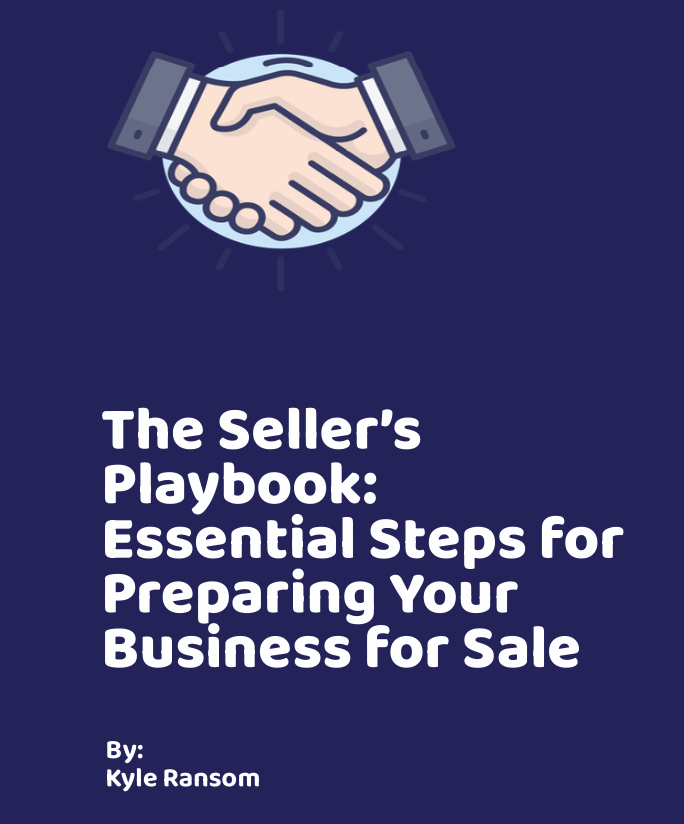
What Are Creative Business Exit Deals and Why Do They Matter?
Most owners think selling a business means handing over the keys and sailing off into retirement with a lump sum check. That’s one option, sure. But not the smartest or the most profitable. Today, we’re diving into creative business exit deals—the kind that let sellers maximize value, reduce taxes, and transition on their own terms.
The best part? These deals aren’t just for Fortune 500 companies. If you’re a small business owner (especially owner-operated), there are plenty of flexible options. From seller financing to earn-outs, you don’t need to accept a rigid, all-cash offer. You have the power to structure a deal that preserves your legacy and fits your financial goals.
Whether you’re selling to a strategic buyer, a private equity firm, or your management team, adding creativity to your deal structure opens the door to smarter outcomes.
As someone who lives and breathes Main Street and lower middle market deals, let me show you how savvy sellers make creative exits work for them.
If you’re in the Business Selling world, understanding these strategies can make all the difference—especially in dynamic markets.
Types of Creative Structures in Business Exit Deals
Creative exits come in all shapes and sizes. The goal is to design terms that align incentives and minimize risk for both parties. Here are a few of the most effective:
- Seller Financing: You finance a portion of the purchase price over time. Offers flexibility to the buyer while providing income to the seller.
- Earnouts: You receive additional payouts if the business hits performance benchmarks after the sale. Great when there’s growth potential but valuation disagreement.
- Equity Rollovers: Cash out part of your equity and retain a stake in the business. Perfect for sellers wanting long-term upside alongside a buyer’s capital and scale.
- Installment Sales: Spread out gains over multiple years to smooth your tax bill.
Done right, each of these adds a layer of sophistication that can turn almost any offer into a win-win.
When to Use Creative Business Exit Deals
So, when does it make sense to go the creative route? Basically, anytime leverage, taxes, or valuation is a challenge. For example:
- Your buyer doesn’t have full cash but brings strong operational potential.
- You’re worried about taxes from a lump-sum windfall.
- There’s disagreement on valuation—earnouts can bridge the gap.
- You’re not ready to retire fully and want to stay involved part-time.
Creative exits give you more levers to pull. If you’re selling a service business or asset-light operation, these deals can help highlight steady cash flows and reduce buyer concern.
Bottom line: creative deal structures inject flexibility into negotiations that could otherwise fall apart over rigid terms.
Benefits for the Seller in Creative Exit Structuring
Let’s be honest—most small business owners don’t want to leave money on the table. With creative business exit deals, you can pull strategic value out of your business without compromising successor success.
Here are a few key perks for the seller:
- Defer capital gains and reduce immediate tax load
- Control the transition timeframe on your terms
- Retain partial ownership upside with less responsibility
- Negotiate from a place of strength—even with fewer buyers
Plus, if you position the deal right, you can even help finance your buyer, improving your chances of finding a suitable successor—especially if they’re family or internal management.
How to Start Structuring a Creative Business Exit Deal
First, clarify your goals. Is it price maximization, tax efficiency, or continuity for your team? Once your ‘why’ is locked in, work through these steps:
- Evaluate the Buyer: Their financial and operational ability drives structuring options.
- Get a Valuation: Know your range. This will help design earnouts, financing rates, or equity rollovers.
- Build a Deal Team: A broker, M&A attorney, CPA, and deal advisor can help structure every element correctly.
- Draft Deal Terms: Include clear contingencies, performance triggers, and payment schedules.
Finally, don’t underestimate post-sale planning. Creative deals often mean you’ll stay involved—it’s essential to define boundaries and communicate transparently with the buyer.

What is a creative business exit deal?
A creative business exit deal is a flexible and often custom-tailored way to sell your business. Instead of a simple all-cash sale, it may involve seller financing, earnouts, or even partial equity retention—allowing both buyer and seller to align interests and minimize risk.
Are creative deals only for large businesses?
Nope. In fact, creative business exit deals are especially useful for small and mid-sized businesses where traditional financing or buyer liquidity might be limited. These structures are perfectly suited for owner-operated businesses looking for transition flexibility.
Do creative deals increase the overall sale value?
In many cases, yes. They offer ways to resolve valuation gaps or offer upside potential through performance-based earnouts. This can lead to a higher final yield than a limited upfront cash offer.
What are the risks of seller financing or earnouts?
There’s always the chance the buyer underperforms or defaults, which is why it’s crucial to vet your buyer and legally protect your position with collateral, escalation provisions, or insurance.
How can I explore creative options for my own business exit?
Partner with an M&A advisor or intermediary experienced in structuring unique exit strategies. They can assess your business, review buyer pool dynamics, and propose customized deal structures that align with your objectives and timeline.
Final Thoughts on Creative Business Exit Deals
When it comes to selling your business, don’t just think about the finish line—think about how you’re getting there. Creative business exit deals allow you to unlock more value, minimize your risk, and make your exit truly work for you.
Whether it’s enabling your buyer, securing your employees’ future, or simply getting paid fairly over time, flexible structures change the game—especially for sellers in today’s evolving marketplace.
Looking to explore your options? Let’s make your exit smarter, not just simpler. Book a free exit strategy consult today and get deal terms that fit your legacy.


No responses yet